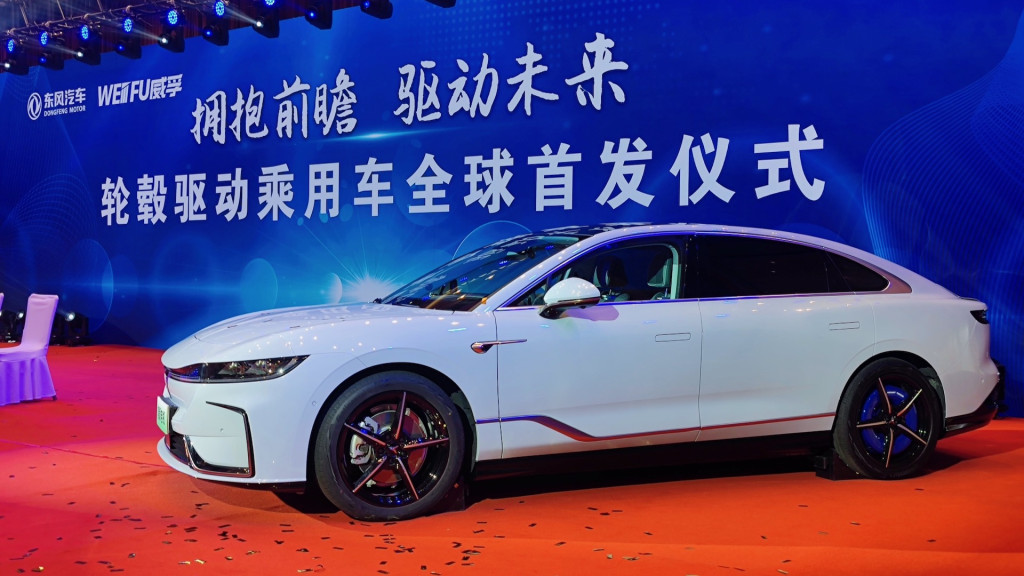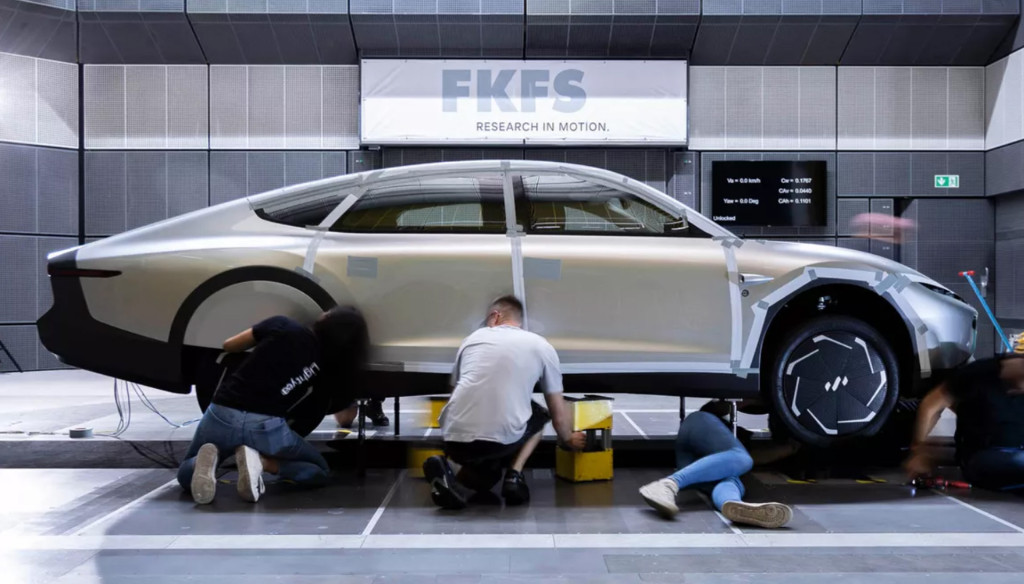Chinese automaker Dongfeng has launched a production model with in-wheel motors from supplier Protean Electric.
In press releases, Protean claims the Dongfeng Fengshen E70 is the "world's first fully homologated passenger car" equipped with two ProteanDrive in-wheel motors. A conventional inboard motor drives the front wheels, while the in-wheel motors power the rear wheels, enabling all-wheel drive. Each rear in-wheel motor produces up to 104 hp.

Voyah Zhuiguang
According to Protean, Dongfeng has found that this configuration is lighter than a conventional all-wheel-drive EV setup. The companies also claim a 50% increase in storage space, a 0-62 mph time 42% quicker, and 18% higher cornering speeds thanks to the torque-vectoring capability of the in-wheel motors. Protean also claims increased efficiency, and 83 fewer parts than a comparable inboard motor setup.
The initial batch of Dongfeng Fengshen E70 sedans are undergoing "fleet trials" in China, according to Protean. Dongfeng has also unveiled a second model with in-wheel motors, the Voyah Zhuiguang, a luxury sedan from the company's Voyah brand.

Lightyear 0 wind-tunnel testing
There's been a lot of interest in in-wheel motors but relatively low-volume use so far. Lightyear claimed its 0 had the most efficient production powertrain in the world but it's already scrapped production. The Lordstown Endurance also used them, but production of that vehicle has stalled as well. That leaves Aptera, which also plans to use in-wheel motors for its three-wheeler—although it will be an autocycle, not a passenger vehicle.
That said, mass-produced in-wheel motors for cars have been on the horizon for some time. And perhaps racing tech—and the threat of the a newcomer from China—will help get them there.












